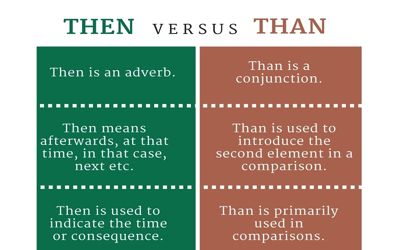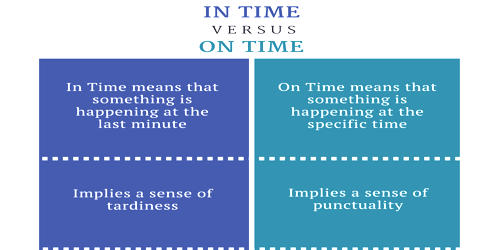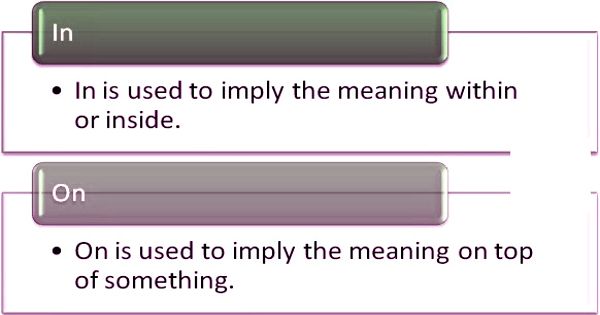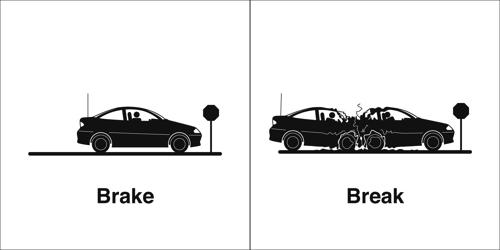In English, ‘than’ and ‘then’ are the most commonly confused terms, due to their same pronunciation, however, they have different meanings. ‘Than’ is used in comparisons as a conjunction, as in “she is younger than I am”. ‘Then’ indicates time. It is used as an adverb, “I lived in Idaho then,” noun, “we’ll have to wait until then”. ‘Than’ is commonly used as a preposition or conjunction, whereas ‘then’ is mainly used as an adverb or adjective.
Both ‘than’ and ‘then’ are action words, wherein ‘than’ is used for comparing two elements or representing contrast or exception. As against ‘then’’ is mainly used in relation to time, to show when something has happened, or the sequence in which events took place. While ‘than’ introduces the second element in comparison, ‘then’ adds another part in a sentence.
Difference Between Than and Then

THAN
- The word ‘than’ is used in comparative sentences, to make compare two entities.
- The word ‘than’ is used when there is some kind of comparison between two subjects.
- The position of ‘then’ is either at the beginning or at the end of the sentence.
- ‘Than’ is basically a comparative term, which is used to make a comparison between two entities, units, individuals, and other elements. That is why its position in a sentence is just after a comparative adjective and adverb.
THEN
- Then is an action word, which is an expression of time, i.e. what happens next.
- The word, ‘then’ is an adverb that expresses actions in time.
- The position of ‘than’ is positioned in the middle of the sentence, which links two elements of comparison.
- ‘Then’ is an expression of time in a sentence, i.e. it indicates what happens afterward. As an adverb, it is used to show ‘at what time’ or ‘to denote the sequence of events’. When ‘then’ is used as an adjective, it indicates something which was true at a certain time in the past, but it is not true at present. Then as a noun refers to ‘that time’.
















